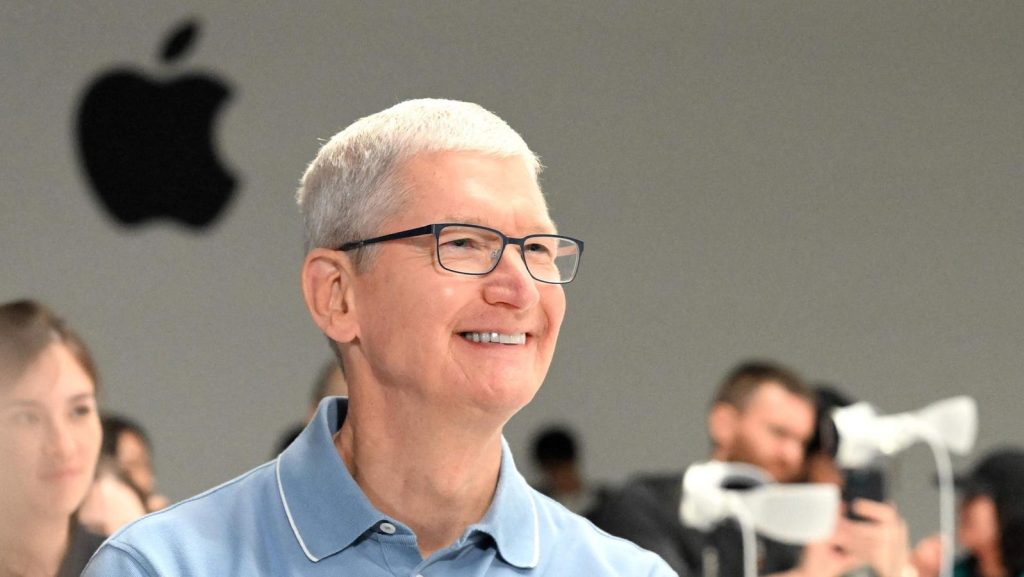With the Pixel 8 and Pixel 8 Pro launch, Google has captured the lead of AI on smartphones, leaving the new iPhone 15 and 15 Pro in its digital dust. Will Apple respond? The latest news suggests it is building up the resources to do just that. But how long will it take?
The details come from noted supply chain analyst Jeff Pu, who reports that Apple is looking to build a significant number of AI servers in 2023 before scaling up to “significantly more” during 2024. These will offer two broad forms of AI support: cloud-based AI and “edge AI” which supports on-device AI data processing.
That points to Apple testing its new AI capabilities in a limited form for the next few months before scaling up to a more extensive testing platform. The implication would be this is for iOS 18, with in-house testing now scaling up to servers outside of a Cupertino-based testbed before the new AI components are revealed at the Worldwide Developer Conference in June 2024. At this point iOS 18 is likely to follow previous versions and move into public beta testing before a launch with the iPhone 16 family in September 2024.
That is an ambitious timescale, especially for Apple—which is regularly late to the market with features after they have become commonplace on Android devices. It’s a timescale that many have brought into question. Ming-Chi Kuo reported in August that Apple was lacking progress in the area, saying “There is reportedly no sign that Apple has plans to launch or integrate AI computing or hardware products in 2024”.
Bloomberg’s Mark Gurman also contributed to this view, “Apple Inc. is quietly working on artificial intelligence tools that could challenge those of OpenAI Inc., Alphabet Inc.’s Google and others, but the company has yet to devise a clear strategy for releasing the technology to consumers.”
Let’s not forget that Apple already offers AI that benefits iPhone users. Its digital assistant Siri relies on machine learning and natural language processing to interpret questions and provide answers. These services were completely cloud-based when introduced, but some data processing was moved onto the device in 2021. Siri also contributes to on-device search and image processing.
That’s no longer enough. The rise of generative AI in the last twelve months has been a disruptive force that must be acknowledged. During the launch of the Pixel 8 Pro, Google repeatedly reiterated that the Pixel 8 and Pixel 8 Pro were “AI-first” handsets with AI baked into both the hardware and the software.
The Google-designed Tensor Mobile G3 allows for faster AI processing on the device’s hardware, which is ably demonstrated throughout the core apps… you have natural language processing to help with transcription in the Recorder app, summaries of web texts, translation, and call screening.
Then, you have the use of generative AI to help with image editing. Unblur and Magic Eraser have been improved from the versions seen in the Pixel 6 and Pixel 7. They have been joined by Magic Editor, which allows resizing and repositioning elements in a picture, with AI filling in the spaces left behind; you have Best Take to allow for a composite group image with the best faces from each person; Audio Magic Eraser allows easy audio manipulation on videos; and coming soon, you have the CSI-inspired Zoom and Enhance, Video Boost, and the inclusion of Google’s large language model Bard to Assistant for even more natural interactions.
It won’t be long before similar AI features appear on other Android-powered flagships. The iPhone will be conspicuously behind the AI curve in six months. Apple may not have any confirmed plans to address AI, but Pu’s observations suggest that the R&D team is working on something.
How far will Apple take its AI efforts in the iPhone 16 family? Will it be restricted to improving Siri, will it start to be visible in other apps, and given the importance of imaging in the smartphone ecosystem, will Tim Cook and his team be forced to follow Google’s lead in AI-powered editing tools?
Apple is not setting the smartphone standard in AI. Can it catch up in a single generation of the iPhone? And if it does, how will it differentiate its offering? Time will tell, but the advantages of having two different approaches to AI in the smartphone marketplace will lift both parties higher.
The sooner Apple joins in, the better.
Now read the latest iPhone, Mac, and iPad news in Forbes’ weekly look at the Apple headlines…
Read the full article here










